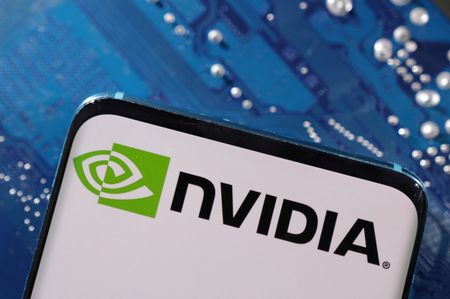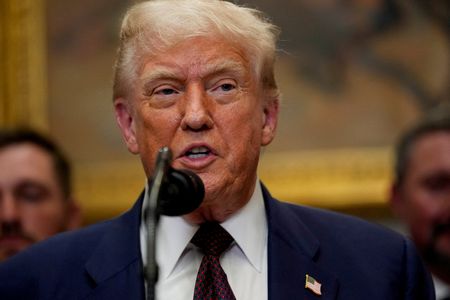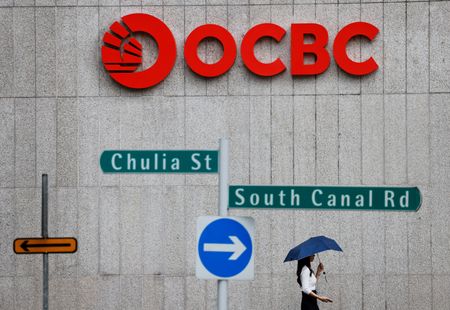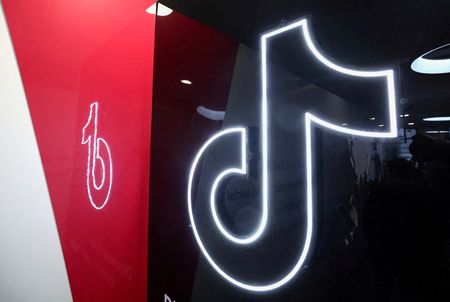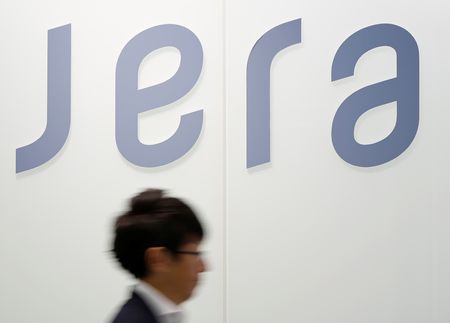BEIJING/SAN FRANCISCO (Reuters) -Nvidia said on Thursday its products have no “backdoors” that would allow remote access or control after China raised concerns over potential security risks in the firm’s H20 artificial intelligence chip.
The Cyberspace Administration of China, the country’s internet regulator, said it was concerned by a U.S. proposal for advanced chips sold abroad to be equipped with tracking and positioning functions. The CAC’s move cast uncertainty over the U.S. company’s sales prospects in China weeks after a U.S. export ban was reversed.
The regulator said it had summoned Nvidia to a meeting on Thursday to explain whether its H20 AI chip had any backdoor security risks, as it was worried that Chinese user data and privacy rights could be affected. A backdoor risk refers to a hidden method of bypassing normal authentication or security controls.
In a statement, an Nvidia spokesperson said, “Cybersecurity is critically important to us. Nvidia does not have ‘backdoors’ in our chips that would give anyone a remote way to access or control them.”
The White House and both houses of U.S. Congress have proposed the idea of requiring U.S. chip firms to include location verification technology with their chips to prevent them from being diverted to countries where U.S. export laws ban sales. The separate bills and White House recommendation have not become a formal rule, and no technical requirements have been established.
Nvidia has been a focus of U.S.-China relations, and China’s move comes shortly after the U.S. this month reversed an April ban on Nvidia selling the H20 chip to China. The company developed the H20 chip for the Chinese market after the U.S. imposed export restrictions on advanced AI chips in late 2023.
“Nvidia chips are now dispensable for China. They can be easily put on the negotiating table,” said Tilly Zhang, an analyst with Gavekal Dragonomics.
“China obviously has more courage and domestic substitution capabilities compared to previous years to not rely on overseas technology.”
This month, Nvidia CEO Jensen Huang embarked on a public and effusive visit to China, where he sought to demonstrate his commitment to the Chinese market, met with government officials, and praised the country’s AI advances.
The CAC statement did not elaborate on what backdoor security risks there could be or say what the Chinese government was considering doing as a result.
STRONG DEMAND
Charlie Chai, an analyst with tech- and consumer-focused 86Research, said Beijing’s warning was likely a symbolic stance against similar objections made by U.S. authorities.
“However, we do not believe Beijing will make excessively harsh demands or introduce regulatory hurdles that will effectively drive Nvidia out of China, for the lack of alternatives. China still needs Nvidia chips for domestic research and applications,” Chai said.
Nvidia’s products are highly sought after not just by Chinese tech companies but also by Chinese military bodies, state-run AI research institutes, and universities. The company last week placed an order with contract manufacturer TSMC for 300,000 H20 chipsets due to strong demand, Reuters reported.
Chinese authorities and industry associations have in the past accused U.S. tech companies of posing security risks, with varying consequences.
In early 2023, China barred key operators of the country’s infrastructure from purchasing from Micron, saying that a review it conducted had found the U.S. memory chipmaker’s products posed serious security risks.
Last year, the Cybersecurity Association of China, an industry group, called for Intel products sold in China to be subject to a security review, but Chinese regulators have not publicly responded.
Nvidia is also facing an antitrust investigation in China. The State Administration for Market Regulation announced late last year it was investigating the chipmaker over suspected violations of the country’s anti-monopoly law.
The regulator said Nvidia was also suspected of violating commitments it made during its acquisition of Israeli chip designer Mellanox Technologies, under terms outlined in the regulator’s 2020 conditional approval of that deal.
(Reporting by Beijing Newsroom; Editing by Jacqueline Wong, Sam Holmes, Rod Nickel)

